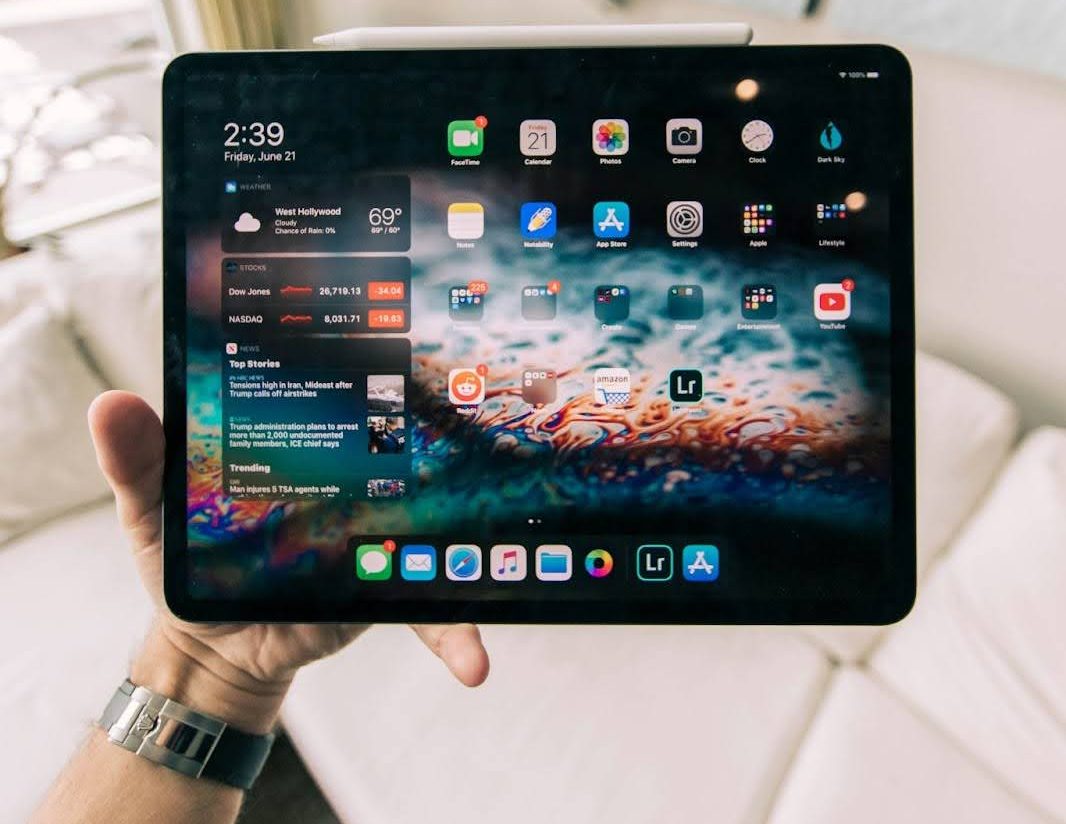What Are the Benefits of Reducing Screen Time?

It’s no secret that in today’s age, we’re surrounded by screens. From the moment we wake up to the minute we close our eyes at night, screens dominate our lives. It’s difficult not to—it’s how we stay up to date on the latest news and trends and keep in touch with those closest to us.
While technology has undoubtedly revolutionized the way we work, communicate, and entertain ourselves, it’s crucial to acknowledge the toll excessive screen time can take on our physical and mental well-being. Keep reading to uncover the benefits of reducing screen time and reclaiming control over our lives.
Better Sleeping Habits: Restoring the Natural Rhythm
Picture this: it’s late at night, and you’re scrolling through your phone, lost in the screen’s bright glow as the same TikTok plays repeatedly. You finally decide to put aside your device and wind down, but as you lie in bed, sleep eludes you. Sound familiar? That’s because there’s a common denominator: blue light. Emitted by screens, this short wavelength but high-energy light disrupts your body’s production of melatonin, the hormone responsible for regulating sleep. When you reduce screen time, especially before bed, you can restore your natural sleep-wake cycle, which directly correlates to deeper, more restorative shuteye.
Reduced Eye Strain: A Clearer Vision for the Future
Have you ever experienced that gritty, dry sensation in your eyes after a long day in front of the phone or computer? That’s just one of the many symptoms of eye strain, a common condition exacerbated by excessive screen time. Not only can prolonged screen exposure lead to discomfort, but it may also contribute to more serious conditions like nearsightedness. You can give your eyes a much-needed break and preserve your vision for years to come when you step away from your device.
Improved Physical Health: Beyond the Sedentary Lifestyle
You know how it goes—we spend ages sitting, whether it’s at our desks, in transit, or just vegging out on the sofa. But all that screen time can mess up our posture, leaving us with aches and pains in our backs and necks that just won’t quit. Plus, being glued to our screens all day can lead to all sorts of health issues like heart problems and muscle discomfort. So, why not shake things up a bit? If you can, break free from the cycle of inactivity, incorporate more movement into your daily routine, and watch as your physical health starts to perk up.
Cognitive And Mental Health Benefits: Nurturing the Mind
Let’s talk about our mental health for a second—it’s a big deal, just like our physical health. The long and short of it is that spending too much time staring at screens can lead to anxiety and depression. It can also impact our attention span, memory, and overall brain function. Cutting back on screen time can help protect our mental capabilities, giving us more clarity, focus, and emotional strength to tackle whatever life throws our way.
Tips for Reducing Your Screen Time
It’s time for you to cultivate a healthier relationship with technology. Let’s dive in and discover how you can make meaningful changes to reduce your usage and live more intentionally.
Turn Off Your Notifications
One of the simplest yet most impactful ways to reduce screen time is by taking control of your notifications. Each ping and buzz draws our attention back to our devices, disrupting our focus and productivity. By turning off unnecessary notifications, you can minimize distractions and reclaim valuable time for more meaningful activities. Consider which apps truly require immediate alerts and disable the rest. You’ll be amazed at how much calmer and focused you feel without constant interruptions.
Track Your Usage
Awareness is key to making positive changes, and tracking your screen time provides valuable insights into your habits. Most smartphones now offer built-in tools to monitor app usage and screen time statistics. Take advantage of these features to identify which apps are consuming the most time and energy. Are social media platforms eating up hours of your day? Are you mindlessly scrolling through news feeds during your downtime? By pinpointing your biggest time sinks, you can take proactive steps to limit their influence and regain control of your digital life.
Set Usage Goals
Once you’ve identified areas for improvement, it’s time to set achievable usage goals. Rather than aiming for a complete digital detox, start small by gradually reducing your screen time. Set realistic targets based on your current usage patterns, whether it’s cutting back by 10% each week or limiting screen time during specific hours of the day. By setting clear goals and tracking your progress, you’ll gradually develop healthier digital habits that align with your lifestyle and priorities.
Create ‘Screen-Free’ Zones
Designating screen-free zones in your home can be a powerful way to break free from the constant pull of technology. Whether it’s banning devices from the bedroom or implementing a no-screen policy during meals, establishing boundaries helps create a healthier balance between screen time and real-world interactions. By creating designated spaces where screens are off-limits, you can cultivate a more mindful approach to technology use and foster deeper connections with loved ones.
Cut Down On Your Screen Time with Freedom: Take the First Step
So, are you ready to take charge of your screen time and reap the rewards for your mind and body? Well, say hello to Freedom—your new sidekick in the battle against screen overload! We have all the tools you need to confidently power down and block digital distractions. Start your journey to a happier, healthier you today with a free trial of Freedom.


